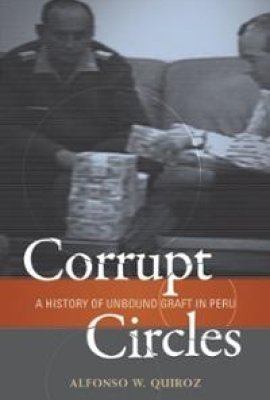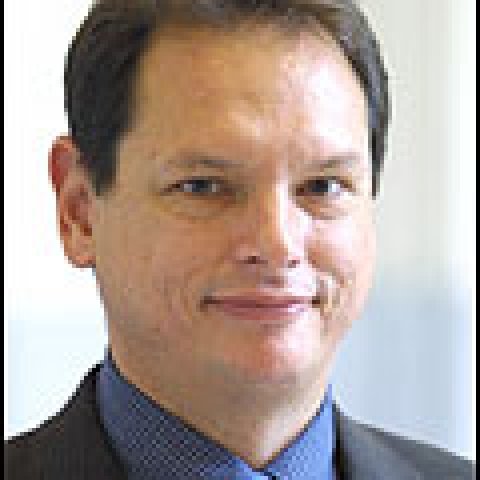Alfonso W Quiroz
Former Fellow
Professional Affiliation
Professor of History, Baruch College and Graduate Center, City University of New York
Expert Bio
Along my professional career I have been interested in finding explanations and solutions to the increasingly pressing issue of economic problems in Latin America and their international repercussions. My own personal experience growing up in Peru led me to study financial and socioeconomic obstacles to economic growth and development. In the last years since the fall of the Berlin wall, I have studied weak institutions, education (human capital), failed reformist efforts, repressed civil society, and bureaucratic corruption in explaining thwarted economic convergence in Peru and Cuba. Both countries are key to understand broader regional issues and to rebut the outdated, yet still influential and mutated dependency and heterodox approaches in Latin American studies.The study of corruption is a good example of how previous approaches have neglected, conveniently bypassed, and even justified or embellished such important aspects of Latin American frustrated development. As early as 1978-80, through empirical historical research, I encountered the central role of corruption in a key financial episode in nineteenth-century Peru. My first book, La deuda defrauda (1987), resulted from that study. I did not continue to pursue that avenue because at the time I considered financial matters and policies more important topics of research. Recent theoretical contributions to the study of contemporary corruption have allowed me to revisit and refocus that crucial historical theme in Latin America.I owe this evolution in my scholarly approach to the down-to-earth education I received at Columbia University, and sabbatical studies at Oxford, Madrid, and Berlin, as well as my teaching experience at City University of New York. My research interests have taken me to archives and libraries in Cuba, Spain, Peru, and other places. Working at the United Nations, in the department of Economic Policy Analysis and as contributor the World Economic and Social Survey (1995-1996), facilitated the study of Latin American contemporary issues and the most recent theoretical approaches on corruption, economic convergence, and human capital. My recent work on Cuba has produced several publications on wars, education, reformism, and corruption. Forthcoming publications include the co-edition of two volumes of studies sponsored by the Cuba Project/Bildner Center (one on the Cuban intellectual Fernando Ortiz and another on the Republican legacies of Jose Marti), and the legal regulation of Cuban associations and civil society. As curator of two exhibitions on the Spanish-American War (1898) I have also gained valuable experience in presenting complex issues to a general public.
Education
B.A. (1980) Universidad Cat—lica, Lima; M.A. (1981) Columbia University; Ph.D. (1986) Columbia University
Experience
- Fellow and Editor, Cuba Project/Bildner Center, Graduate Center, CUNY, 2000-present
- Senior Associate Member, St Antony's College, Oxford,1989-90
- Fellow/Lecturer, Universidad de Alcala, Madrid (1993) and Freie Universitat, Berlin (1990)
- Lecturer, Columbia University (1997) and New York University (1992)
- Assistant Professor, Bowdoin College,1986
- Economic Affairs Officer, United Nations, 1995-96
- Visiting Curator, New York Public Library and New-York Historical Society,1997-98
Expertise
Latin American economic and institutional history; Peruvian colonial and modern financial development; Cuban colonial and early twentieth-century institutions, reformism, education, and civil society; comparative history of bureaucratic corruption
Wilson Center Project
"Curbing Global Corruption: Economic and Institutional Costs of Corrupt Administration in Peru"
Project Summary
This is a study of the long-term impact of public and private corruption, and the efforts of those who have fought against it, in a country struggling toward economic development. Corruption has had a very costly burden for Peruvian economic and institutional growth. The most recent wave of corruption with global interconnections can be seen as new manifestations of recurrent historical cycles of widespread bureaucratic corruption in Peru during the 1850s, 1870s, 1920s, 1950s, and 1990s. These cycles are not determined by cultural constants but mainly by fluctuating institutional settings that alter the opportunity costs of engaging in corrupt administration. This historical approach underscores the central, yet poorly studied, role of corruption in undermining economic efficiency, income distribution, civil society, democracy, and stability in developing countries.
Major Publications
- Domestic and Foreign Finance in Modern Peru, 1850-1950: Financing Visions of Development. London and Pittsburgh: Macmillan and Pittsburgh University Press, 1993
- La deuda defraudada. Consolidacion de 1850 y dominio economico en el Peru. Lima: Instituto Nacional de Cultura, 1987
- "Loyalist Overkill: The Socioeconomic Costs of 'Repressing' the Separatist Insurrection in Cuba, 1868-78." Hispanic American Historical Review (1998) 78: 261-305
Insight & Analysis by Alfonso W Quiroz
- Past event
- History
Corrupt Circles: A History of Unbound Graft in Peru

- Book
- Democracy
Corrupt Circles: A History of Unbound Graft in Peru


